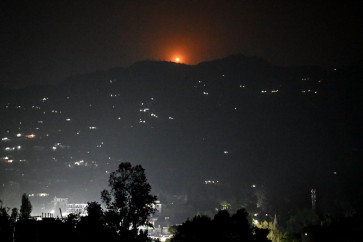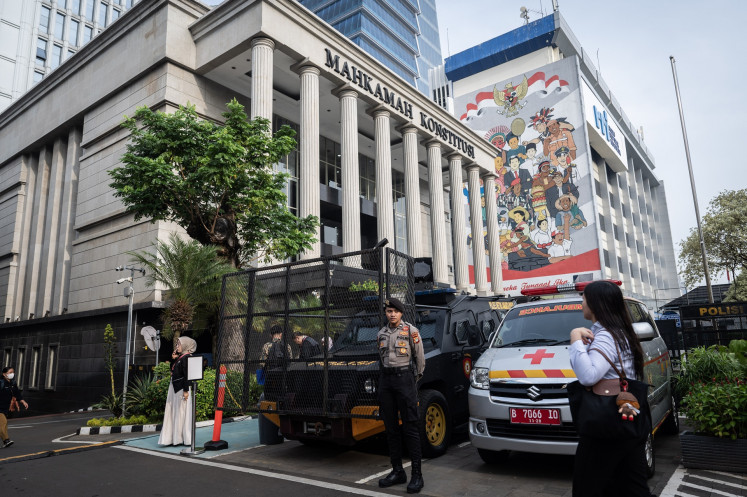Inequality key factor in radicalization: Wahid Institute
Change text size
Gift Premium Articles
to Anyone
 Wahid Foundation executive director, Yenny Wahid, hands over a survey report on pluralism and tolerance to National Counterterrorism Agency (BNPT) chief Suhardi Alius in Bogor on Tuesday. (JP/Muhammad Reza)
Wahid Foundation executive director, Yenny Wahid, hands over a survey report on pluralism and tolerance to National Counterterrorism Agency (BNPT) chief Suhardi Alius in Bogor on Tuesday. (JP/Muhammad Reza)
S
ocial and economic disparities are among the main factors behind the widespread teaching of radicalism across Indonesia, according to religious freedom watchdog Wahid Foundation.
The foundation's executive director, Yenny Wahid, said at a discussion on Monday that the disparities made lower-income and poorly educated people feel alienated from the better off parts of society.
"This situation is harnessed by radical groups to easily indoctrinate them [people of lower economic status]," said Yenny, the daughter of the nation’s tolerance icon, the late president Abdurrahman Wahid. She added that another factor was monitoring difficulties as Indonesia was an archipelagic country that consisted of thousands of islands.
"Lack of advanced monitoring leaves Indonesians prone to radical teaching, which possibly leads to terrorism," she said.
National Counterterrorism Agency (BNPT) head Suhardi Alius, who was also present at the discussion, said that his agency acknowledged a higher amount of radicalization in the past months as the country tackled religious issues, such as the series of rallies against Jakarta Governor Basuki "Ahok" Tjahaja Purnama.
"We do not want radical groups to take these opportunities to spread their teachings. We want to anticipate it," Suhardi said, adding that the agency had taken a lot of preventive measures.
He added that the BNPT would continue to coordinate with Islamic organizations, such as Muhammadiyah, to anticipate the influx of radical teachings. (adt/evi)









